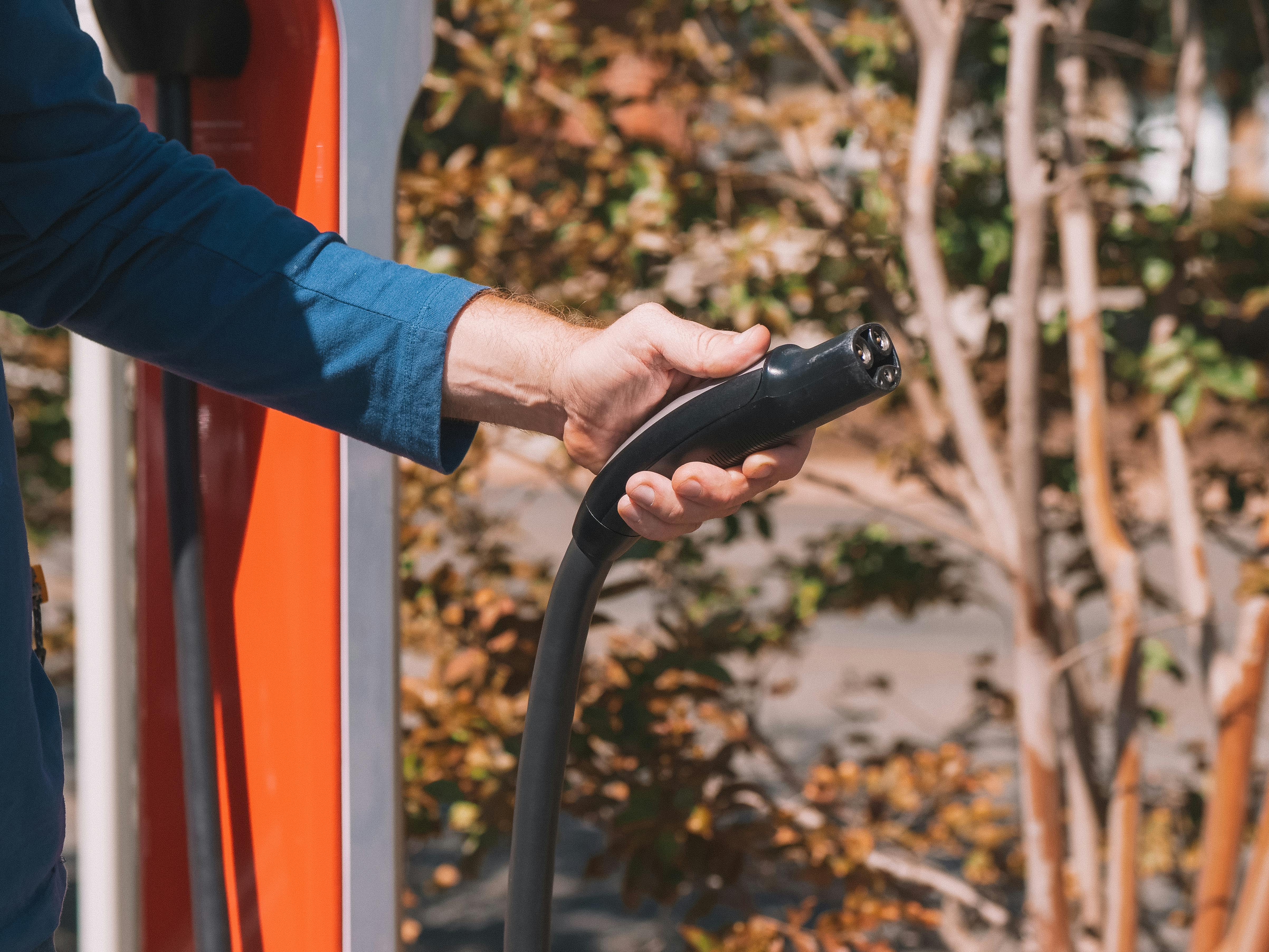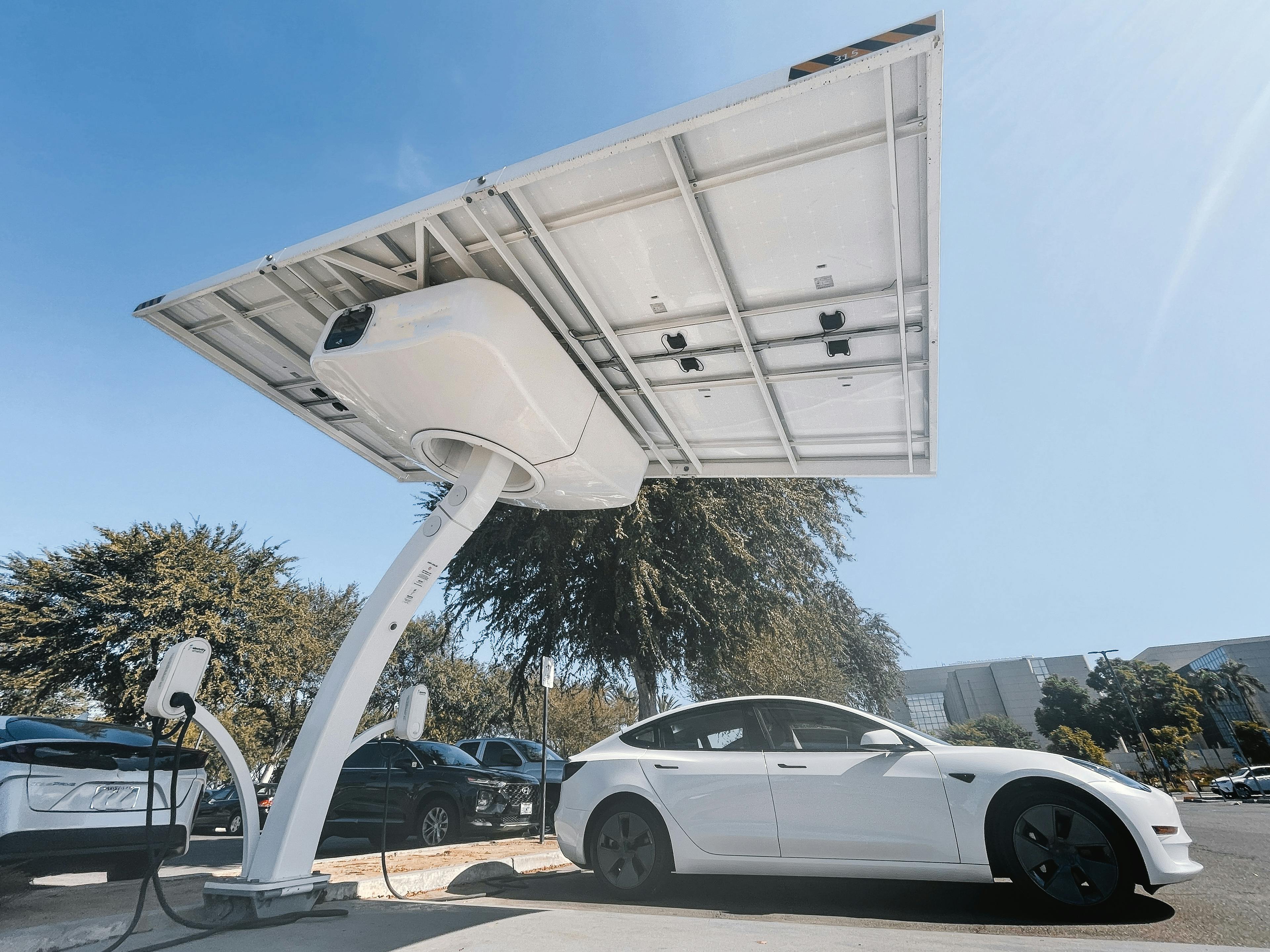Are Electric Cars a Good Option for a Road Trip?
This is a guest post by Jane Parker, an automotive enthusiast and sustainability advocate with over 8 years of experience in the electric vehicle industry. She enjoys combining her passion for green technology with road adventures, exploring the practical aspects […] The post Are Electric Cars a Good Option for a Road Trip? appeared first on Hopping Feet.

This is a guest post by Jane Parker, an automotive enthusiast and sustainability advocate with over 8 years of experience in the electric vehicle industry. She enjoys combining her passion for green technology with road adventures, exploring the practical aspects of electric vehicles for long-distance travel. Jane regularly shares her insights on the future of transportation, offering tips and advice to eco-conscious travelers.
Electric cars have gained popularity for various reasons, including their eco-friendliness and lower operating costs. As road trips become increasingly common, many travelers ponder whether these vehicles can effectively meet their long-distance travel needs. The truth is that electric cars can be a viable option for road trips, provided drivers plan their routes and charging stops carefully.
While the availability of charging stations has increased significantly, it's critical for travelers to research and map out their journey. Factors such as charging time and the range of the vehicle can influence the overall experience. Familiarity with charging network apps and tools can help ensure that the trip is smooth and enjoyable. Planning ahead allows electric car enthusiasts to enjoy the open road without the fear of running out of battery.
The experience of driving an electric vehicle on a road trip can differ from traditional cars. Many electric vehicles offer advanced features and a quiet ride, which can enhance the overall journey. With a bit of preparation, travelers can discover new destinations while embracing the benefits of sustainable travel.
- Battery Range and Charging Infrastructure
- Cost-Efficiency and Environmental Impact
- Driver Comfort and Convenience
- Road Trip Readiness of Electric Vehicles
- Planning an Electric Vehicle Road Trip
Battery Range and Charging Infrastructure
Battery range is a critical factor for electric vehicles (EVs) on road trips. The distance an EV can travel on a single charge varies by model. Most modern electric cars offer a range of 250 to 400 miles. Charging infrastructure is equally important. As of 2024, there is a growing network of charging stations across many regions. This helps alleviate concerns about running out of power during a trip. Key Considerations
- Charging Point Availability
It is essential to plan routes that consider the locations of charging points. Apps and websites can help locate nearby stations. - Charging Speed
Charging stations vary in speed. Level 2 chargers typically take several hours to fully charge an EV, while DC fast chargers can recharge a battery to about 80% in 30 minutes. - Route Planning
Many EV navigation systems include charging station locations in their route plans. This ensures that drivers can stop at necessary points for recharging. - Back-Up Options
Drivers should be aware of alternative charging networks. Having a backup plan can reduce anxiety about charging availability on long trips.
Understanding battery range and charging infrastructure enhances the road trip experience for EV drivers. With advancements in technology and planning, electric vehicles can be a viable option for adventurous travels.

Cost-Efficiency and Environmental Impact
Electric vehicles (EVs) can present significant cost benefits for road trips. The cost of electricity for charging is generally lower than gasoline, making long-distance travel more affordable. For instance, charging an EV may cost about $5 to $15for a full charge, depending on local electricity rates.
Fuel savings contribute notably. A traditional gasoline vehicle averages around 25 miles per gallon, while an EV often achieves 3-4 miles per kilowatt-hour. For a 300-mile trip, this translates into substantial savings.
Charging infrastructure grows with each passing year. Many states offer fast charging stations, allowing drivers to recharge during breaks. Some notable fast-charging networks include:
- Tesla Superchargers
- Electrify America
- ChargePoint
Electric cars have a lower environmental impact compared to conventional vehicles. They produce zero tailpipe emissions, reducing air pollutants. When charged with renewable energy sources, the overall carbon footprint shrinks even further.
A 2021 study showed that EVs could reduce lifetime greenhouse gas emissions by up to 50% compared to gas-powered vehicles, especially when considering the emissions from fuel extraction and refining. In summary, the cost-effectiveness of EVs for road trips is compelling. Alongside their reduced environmental impact, they represent a sustainable option for travelers seeking both savings and a commitment to cleaner transport solutions.

Driver Comfort and Convenience
Electric cars are designed with driver comfort in mind. Many models feature spacious interiors, ergonomic seating, and advanced climate control systems that enhance the driving experience. Key Features:
- Quiet Operation: Electric vehicles operate smoothly, reducing noise levels, which can lead to a more relaxing road trip.
- Advanced Technology: Many electric cars include infotainment systems with navigation, Bluetooth connectivity, and voice control, allowing for easy access to information and entertainment.
- Customization: Drivers can often adjust settings for seat position, climate, and driving mode to suit their preferences.
Finding charging stations can impact convenience during road trips. Electric vehicle (EV) manufacturers have been expanding charging networks, which can ease range anxiety. Considerations:
- Charging station availability may vary by location.
- Some charging stations have faster options, reducing wait times.
- Trip planning is essential to locate charging stations along the route.
Most electric vehicles offer competitive cargo space. This allows for ample room for luggage and travel essentials, making it easier for travelers to pack for longer journeys. Ergonomically designed car interfaces mean that essential controls are easily accessible, enhancing safety and comfort for the driver. Road trips in electric cars can thus be both enjoyable and efficient with proper planning.

Road Trip Readiness of Electric Vehicles
Electric vehicles (EVs) can be a suitable option for road trips, but several factors impact their readiness. Range, charging infrastructure, and planning are crucial elements to consider.
Range The driving range of an EV varies by model. Many newer models offer between 200 to 300 miles on a full charge. Long trips may require more frequent stops to recharge.
Charging Infrastructure Access to charging stations is essential. A well-planned route includes locations of fast chargers. Apps and websites can help identify charging stations along the journey.
Time for Charging Charging times differ significantly. While a fast charger may take 30 minutes to 80% capacity, a standard outlet can take several hours. Trip planners should account for these charging durations in their schedules.
Battery Management Maintaining battery efficiency is important. Driving smoothly and using regenerative braking can extend range. Keeping the battery charged above 20% helps prevent range anxiety.
Route Preparation Planning the route with charging stops can alleviate stress. Awareness of charger availability ensures a smoother journey. Utilizing an EV-specific app can streamline this process.
In summary, while electric vehicles can facilitate road trips, proper planning is key. Familiarity with vehicle range, charging times, and the availability of charging stations ensures a positive experience.

Planning an Electric Vehicle Road Trip
Planning a road trip with an electric vehicle (EV) requires careful consideration. Key factors include range, charging stations, and route planning.
- Determine Range
Most EVs have a range between 150 to 370 miles on a full charge. Knowing the range helps in planning stops along the route. - Map Charging Stations
Use apps like PlugShare or ChargePoint to locate charging stations. Look for fast chargers to minimize downtime. - Create a Flexible Itinerary
Draft a travel itinerary including distance between charging stations. Be ready to adjust plans based on charging times and availability. - Pack Essentials
Pack extra charging cables, a portable charger, snacks, and water. These items can enhance comfort during charging stops. - Check Weather Conditions
Weather can affect battery performance. Cold temperatures may reduce range, so adjust plans accordingly. - Stay Informed About Charging Costs
Charging costs can vary by location. Some stations offer free charging, while others may charge per kWh. - Backup Plan
Have a backup plan in case charging stations are full or malfunctioning. Identifying alternative routes with different charging options is wise.
Taking these steps can simplify the experience and ensure a more enjoyable road trip with an electric vehicle.
The post Are Electric Cars a Good Option for a Road Trip? appeared first on Hopping Feet.
















